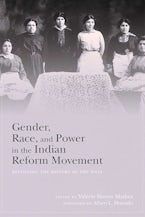- Home
- social science
- language arts & disciplines
- Native American Rhetoric
Native American Rhetoric is the first book to explore rhetorical traditions from within individual Native communities and Native languages. The essays set a new standard for how rhetoric is talked about, written about, and taught. The contributors argue that Native rhetorical practices have their own interior logic, which is grounded in the morality and religion of their given traditions. Once we understand the ways in which Native rhetorical practices are rooted in culture and tradition, the phenomenological expression of the speech patterns becomes clear. The value of Native communities and their languages is underlined throughout the essays. Lawrence W. Gross and the contributors successfully represent several, but not all, Native communities across the United States and Mexico, including the Haudenosaunee, Anishinaabe, Choctaw, Nahua, Chickasaw and Chicana, Tohono O'odham, Navajo, Apache, Hupa, Lower Coast Salish, Koyukon, Tlingit, and Nez Perce. Native American Rhetoric will be an essential resource for continued discussions of Native American rhetorical practices in and beyond the discipline of rhetoric.
Lawrence W. Gross is Anishinaabe and an enrolled member of the White Earth Reservation in northwestern Minnesota. He is the author of Anishinaabe Ways of Knowing and Being.
"Beginning with a beautiful dedication in verse to Inés Talamantez, our colleague and mentor, editor Lawrence W. Gross and eleven contributors offer studies of selected diverse examples of Indigenous rhetorical traditions and practices. This informative and engaging book is a much-needed contribution to the discourse on Native American rhetorical traditions."--Michael J. Zogry, author of Anetso, the Cherokee Ball Game: At the Center of Ceremony and Identity
"Native American Rhetoric is a substantive analysis of rhetorical sovereignty and a valuable contribution to the fields of rhetoric, cross-cultural communication, and Native American studies. Rather than revisiting the tired tropes of political activism and postcolonial 'resistance'--which ultimately amounts to recentering the dominant culture--Larry Gross and the contributors situate their studies in tribally and culturally specific contexts: in religions, in linguistic communities, and more. This book takes Indian cultures seriously."--Scott Richard Lyons, editor of The World, the Text, and the Indian: Global Dimensions of Native American Literature
"This beautifully fitting tribute to the life and work of Inés Talamantez explores the poetics, politics, and sacred power of Native North American rhetoric, exemplifying what Dr. Talamantez taught her students to do: theorize from within. Contributors reveal how rhetorical practices emerge from communities' own interior logic, moral thinking, core values, religious practices, and strategies for listening. From oration, to poetry, to visual narrative and performance, the book is an affirmation of the vital and continuing presence of rhetorical sovereignty in North America and the transformative potential of attending to another's voice."--Suzanne Crawford O'Brien, author of Religion and Culture in Native America
List of Illustrations
Preface
Acknowledgments
Introduction
Lawrence W. Gross
Chapter One. "And Now Our Minds Are One": The Thanksgiving Address and Attaining Consensus among the Haudenosaunee
Philip P. Arnold
Chapter Two. The Use of Digressions in Anishinaabe Rhetoric as a Moral Act: Connecting Speech to the Religious Idea that All Things Are Related
Lawrence W. Gross
Chapter Three. Chicana/o/x Rhetoric: Relevance and Survival through Naming, Space, and Inclusion
Delores Mondragón
Chapter Four. Women, Childbirth, and the Sticky Tamales: Nahua Rhetoric and Worldview in the Glyphic Codex Borgia
Felicia Rhapsody Lopez
Chapter Five. "O'odham, Too": Or, How to Speak to Rattlesnakes
Seth Schermerhorn
Chapter Six. Sounding Navajo: Bookending in Navajo Public Speaking
Meredith Moss
Chapter Seven. Agency of the Ancestors: Apache Rhetoric
Inés Talamantez
Chapter Eight. Why We Fish: Decolonizing Salmon Rhetorics and Governance
Cutcha Risling Baldy
Chapter Nine. "Hey, Cousin!": Rhetorics of the Lower Coast Salish
Danica Sterud Miller
Chapter Ten. The Two-Spirit Tlingit Film Rhetoric of Aucoin's My Own Private Lower Post
Gabriel S. Estrada
Chapter Eleven. Think Kodhamidh!: Cultural Continuity through Evaluative Thinking
Phyllis A. Fast
Chapter Twelve. Coyotean Rhetoric: A Trans-Indigenous Reading of Peter Blue Cloud's Elderberry Flute Song
Inés Hernández-Ávila
Bibliography
Contributors
Index










